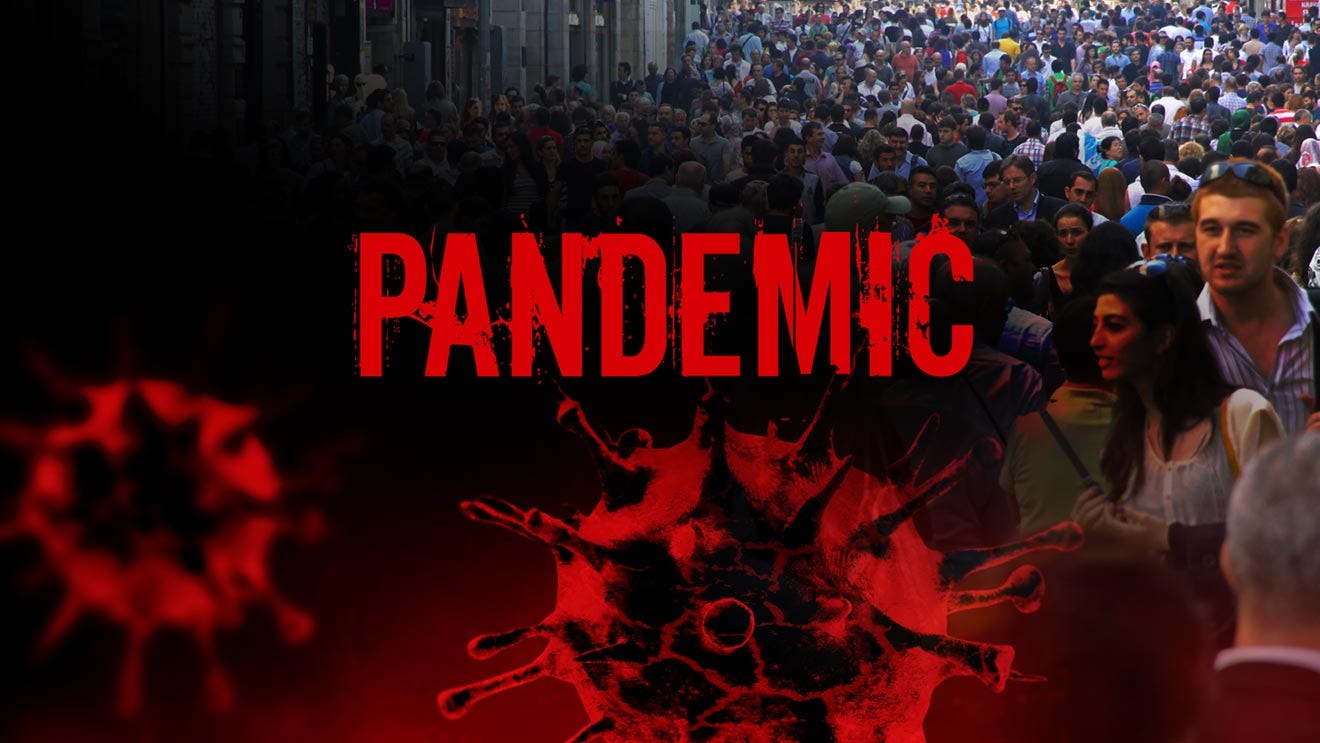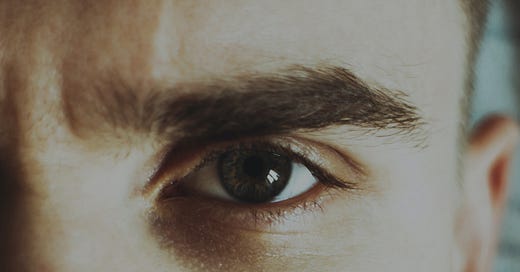
In spring and summer 2020, governments closed many places: schools, parks, churches and restaurants and other small businesses. It was pure theater.
But New Jersey’s governor decreed that such community gardens as those I managed could remain open. It would have been bad PR to deprive poor people of the ability to grow food. Community gardening resembled the BLM riots: exchanging “droplets” was nothing to be concerned about, as long as those exchanging them were doing something PC.
The amount of food grown in a community garden plot is a fraction of the food that most households need. The chief benefit of such gardens is that they provide green spaces where people share time with people they know—typically mothers towing their children—and meet new people while going back-to-the-land a half hour at a time.
Parks provide the same benefits, minus digging in the dirt. Nonetheless, spokespersons for “The Science” decreed: people meeting in gardens: good. People meeting in parks: dangerous! Similarly, small businesses: off-limits. Big Box stores: shop ‘til you drop! How gullible could people have been not to have seen such arbitrary nonsense and the overall Scam it reflected? Though many perceived the phoniness and played along because they were benefitting from the disruption.
Be that as it may, in 2020, the New Brunswick, New Jersey gardens where I worked looked better than they ever had. People were desperate for a place to go to escape their apartments and be among other people. Thus, they spent more time than usual planting, weeding and harvesting. Extra care made their plants thrive.
There was one glaring exception in our gardens: a plot ostensibly managed by a traditionally underperforming gardener named Darlene. Darlene’s plot was characteristically untended in late June 2021. As in prior years, when it was clear that she wasn’t caring for her space, I pulled the weeds there and planted zinnias, sunflowers and giant marigolds. I also cut down—and, with pick and shovel, extracted the gnarly roots of—two five-foot tall, three-inch-trunk-diameter, non-bearing trees that Darlene had inexplicably planted two seasons earlier. Clearing the trees created more space to plant flowers. Further, as the flowers attracted bees and as the trees no longer cast six hours of shade on adjacent plots, those gardens yielded better.
In July 2021, when I was off-site, Darlene finally returned to the gardens and found that the trees had been removed and that her long-neglected plot had been reassigned to another gardener. She called me that afternoon, indignant about me having engaged in micro land-reform by assigning “her” space to someone else.
I told Darlene that she didn’t own the plot. She had only, in prior seasons, rented it (she never paid the rent—$15 for the season—because she claimed she couldn’t afford to) and that someone else wanted to use that space. I added that, given her neglect of the space during each of the prior three seasons, it was only fair and functionally and aesthetically appropriate that a new gardener be given a chance to make better use of the space than she had made.
Darlene didn’t/couldn’t deny that she hadn’t tended her plot. Instead, she emotionally protested, “But there was a Pandemic!”
I noted that “The Pandemic” didn’t stop other people from showing up and taking care of their plants and that peoples’ stuff looked better in 2020 than it ever had. I sincerely wished Darlene good luck finding space in one of the City’s other gardens.
—-
Labels have excessive power. They’ve long been used to manipulate perception and to inflame emotion: in advertisements, news reporting, cultural or political matters and in people’s social and inner lives. There are thousands of examples. “Extremists” and “misinformation” spring immediately to mind.
Buzzwords’ pervasiveness and power have never been clearer than during the past four years. Consider: “superspreaders,” “horse paste,” “spiking cases” “Winter of Death,” and “Covid” itself.
The label I’ve hated most of all, the one heard most often and the one with the most staying power has been: “The Pandemic(!).”
I never say that word. I won’t dignify it by speaking it. I only write it here to make a point.
Some say that to name an illness is to empower it. Certainly, there are many named diseases that simply reflect old age or overweight. The media and government labeled the transmission of a respiratory virus, or a combination of viruses, “The Pandemic.” Consequently, governments declared “Health Emergencies” to justify otherwise unjustifiable lockdowns, school closures, masks, asymptomatic testing and later, mandatory, injections.
As H.L. Mencken observed, “The whole aim of practical politics is to keep the populace alarmed (and hence clamorous to be led to safety) by an endless series of hobgoblins, most of them imaginary.”
The Merriam-Webster Dictionary defines a shibboleth as “a word or saying used by adherents of a party, sect, or belief and usually regarded by others as empty of real meaning.”
It defines a mystique as “a fascinating aura of mystery, awe and power surrounding someone or something.”
“Pandemic” was a shibboleth with a mystique. The New York Times, Washington Post and Atlantic, PBS, MSNBC, CNN and NPR ceaselessly invoked this fascinating, mysterious, awesome word. It quickly became a tribal signifier for a sect of news consumers, especially those who belonged to the Democratic party.
Saying “The Pandemic” conferred unprecedented, undeserved and unlimited power upon a respiratory coronavirus; that is, assuming that all of the respiratory illness in the past four years was due to a single virus known as SARS-CoV-2. Was this link ever firmly established? If so, no one told me.
No matter which virus or array of viruses may have been circulating, no reasonably healthy person should have been afraid. But instead of rationally assessing and judiciously reacting to illnesses that threatened only a small, clearly identifiable fraction of the population, constantly invoking “The Pandemic” fostered the fundamentally false message that we faced a unique, universal crisis that warranted an extreme overreaction.
Non-stop invocations of “The Pandemic” caused pan-societal, unjustified terror that caused people to embrace a wide array of ridiculous rules and to support expenditures of trillions of public and private dollars on items, programs and giveaways that did no good. Even adjusting for inflation, the US spent far more money on the Covid response than it had during World War II in both Europe and Asia. Compare the return on investment for these two expenditures.
“The Pandemic’s” human isolation and spending spree have caused tremendous, long-term damage. Post-March 2020 inflation has permanently impoverished tens of millions and further stratified wealth, world-wide. Governments got away with the lockdowns and potlatches because most Americans don’t think beyond either their own wallets or desires, or this week.
Yet, throughout, the prevailing notion was that any measure—no matter how large, small, silly or destructive—that might be said to end “The Pandemic (!)” was worth it. Abandon logic and sanity, all who enter here: we must stop “The Pandemic!”
Simply saying “The Pandemic” foreclosed reasonable discussion of how many people were actually dying from vs. with a virus and whether we should restructure a society over this. Most people said “You can’t question lockdowns, school closures, masks, asymptomatic testing and vaxxes! There’s a ‘Pandemic’ going on!”
“Pandemic!” “Pandemic!” “Pandemic!”
Did I mention “The Pandemic?”
If there had been a “Pandemic” drinking game, all US adults would have been passed-out-drunk every day from March 15, 2020-December 31, 2023.
Though “The Pandemic” uncomfortably, dysfunctionally restricted most people, it paradoxically freed others by serving as a pretense for many forms of neglect. As with Darlene, invoking “The Pandemic” provided an alibi for individuals who shirked basic obligations. People didn’t have to show up for work, pay rent, service debts, go to church or get together with family members or work colleagues whom they disliked. “The Pandemic” became the ultimate, catch-all, “dog ate my homework” excuse. It was also a “get out of jail card” for various types of misbehavior. Literally. “The Pandemic” was used as a reason to release criminals from prisons.
Throughout the past four years, “The Pandemic” has also been used to mark a timeline in conversation and to enable people to ascribe structure to, and to self-narrate, their lives. People repeatedly, tritely and annoyingly preface comments with "During the Pandemic" or “Before the Pandemic" or "After the Pandemic."
Many people continue to ascribe magical, peremptory power to “The Pandemic” to self-absolve their otherwise inexcusable conduct over the past four years, especially their support for the nonsensical, destructive NPIs and for their hectoring and name-calling during this purportedly perilous period. Their bankrupt, revisionist We-Couldn't-Have-Known-ism is routinely coupled with “because there was a “Pandemic!”
“Pandemic” exploitation will continue for years. Politicians, universities, bureaucrats and Pharma will cite “The Pandemic” to justify lavish and unproductive—but Pharma mega-profitable—subsidies to fund more “vaccines,” research and “Public Health” bureaucracies, both domestic and international. They’ll demagogically exclaim, “We’ve gotta prevent ‘The Next Pandemic!“
“Scamdemic” much better describes what’s happened.
Over the past four years, the problem wasn’t a virus. The problem was that bureaucrats, politicians and the media opportunistically overreacted to a virus and justified doing so by giving it a special, scary name, which people parroted ceaselessly instead of reading or thinking about how none of the interventions made sense.
A virus didn’t make me sick. But hearing “The Pandemic,” non-stop, did.
It still does. I think I have “Long Pandemic.”















Hear, hear! Long Pandemic! I’ll raise me pint to that one come Good Friday!
“Simply saying “The Pandemic” foreclosed reasonable discussion of how many people …”
I’d shorten that to “foreclosed reasonable discussion (and still does).” We were desperately short of reasonable discussion in our society as it was, but now, as you have pointed out so eloquently, any attempt at making sense of what happened, and is happening, is just swatted away with “pandemic” “because of COVID” “we didn’t know” “you can’t be too safe” and so on…
On a different, but related point, I have often wondered how on earth many if not most people will willingly surrender their agency to credentialed professionals who have repeatedly demonstrably failed to solve or mitigate the “problem” they have been hired to figure out.
Way, way, way before “COVID”, I have asked some of my credulous tree care customers why they would continue to seek out medical attention from the same people who have not only not “solved” the original symptom, but now have blessed them with “side effects”. I ask them if they would continue to hire me (a tree guy) or a plumber or electrician if each and every time they called us, the tree problem got worse, the basement was still flooded and the house dimmed every time you plugged in their toaster. I usually get blank looks of something like “yeah, I see what you mean”…… there must be something deeply ingrained in or genetically part of our being that urges us to surrender to patently incompetent, and often irresponsible and evil people….
I dunno….I’m a gonna get to work…
Cheers, Mark!
The first indication that the storm on the horizon was going to be of unprecedented magnitude was my wife’s use of the word. Usually level headed, despite working for Pf, once it was announced to be a pandemic, she uncharacteristically relaid the fact to me in a panicked voice. I responded by telling her that only meant it covered more geography and that it said nothing about how dangerous the disease was. This calmed her down, but she knew this to be true. Why did she need to be reminded of it?
I use a different P word to describe the past 4 years, the panic.